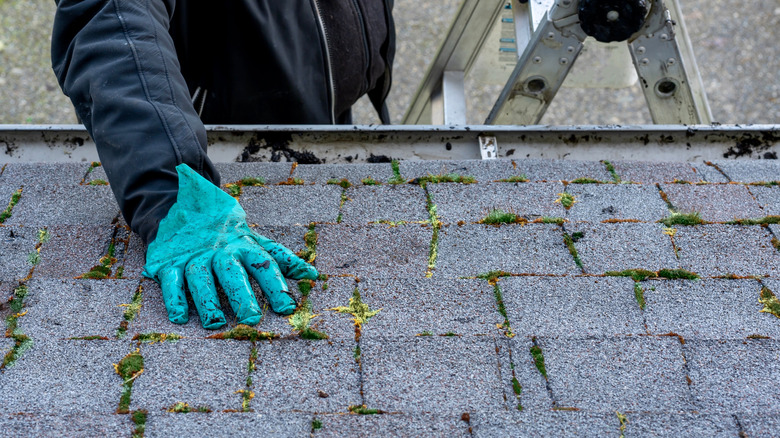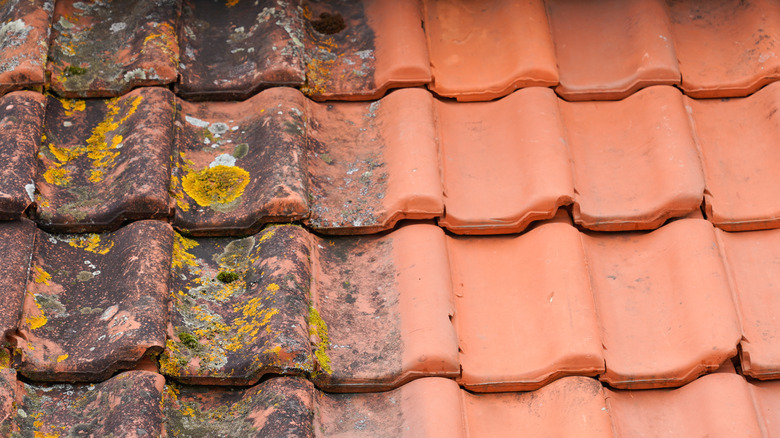Should You Really Be Using Laundry Detergent To Get Rid Of Moss On Your Roof?
Of all the places around your house you typically think to inspect for preventive maintenance, your roof is both one of the more difficult to access and one of the most vulnerable to long-term damage and decay caused by constant exposure to the elements. During rainy seasons, moss can develop and spread rapidly between the shingles of your roof, which, if left to its own devices, can create costly and complicated problems for you to resolve in the future. In worst-case scenarios, since the plant is capable of drastically shortening your existing roof's lifespan, untreated moss can force a homeowner to purchase an entire new roof — a preventable investment that may cost well over $10,000.
There are many DIY and professional cleaning options for homeowners to consider when looking to rid their roofs of moss, but some of these solutions aren't as effective as others. Laundry detergent is a household essential often cited for its moss-busting capabilities, but the cleaning hack isn't recommended by many roofing professionals. Apparently, using the product on your shingles can actually cause more harm than benefit. As a makeshift moss remover, laundry detergent can risk weakening the components of your roof and, as a result, decrease its lifespan. Also, laundry detergents may produce soap suds upon making contact with rainwater, leaving behind an unappealing, streaky residue.
Consider moss-control products instead
It's notable that some of the cheapest and most powerful roof-cleaning solutions on the market can actually cost homeowners more money and time in the long run. Laundry detergent and bleach, for example, each feature strong chemicals capable of removing dirt and moss from surfaces quickly and easily ... but not without creating additional issues for nearby animals, plants, and residents that regularly interact with the water supply. The strength of these chemicals also negatively impacts your roof's ability to protect the rest of your house. In fact, the enzymes added to many laundry detergent formulas to remove oily stains from clothes can speed up the erosion process of shingles, as well as the materials used to secure the shingles to their underlying fiberglass mat. In other words, laundry detergents can continue the work first set into motion by intruding moss and accelerate the breaking down of your roofing parts, amplifying the need for a replacement.
If you're looking for a long-term roof-cleaning solution that's tough on moss but safe for your shingles and the environment surrounding them, there are a few alternatives homeowners can explore that stop the problem without introducing others. Moss is normally at its weakest during the summer months, so if you happen to spot it on your roof during the hottest season of the year, try brushing any growth away with a broom — no chemicals required. Chemical roof cleaners are also typically sold online and inside hardware stores.

